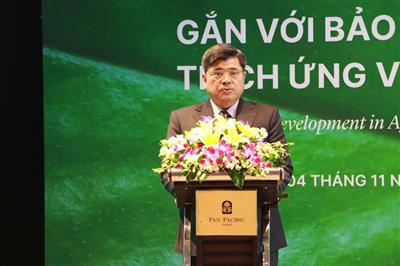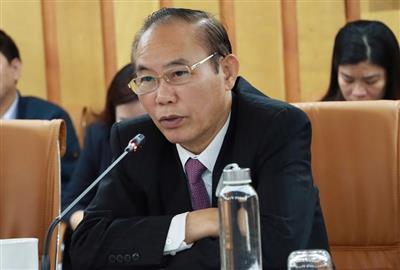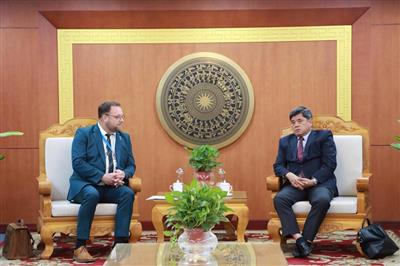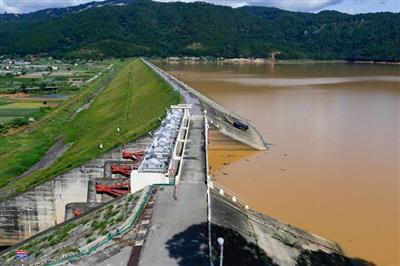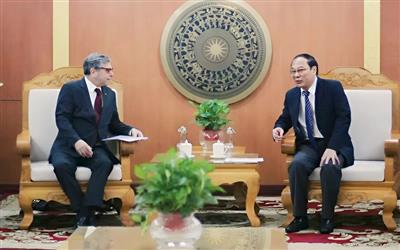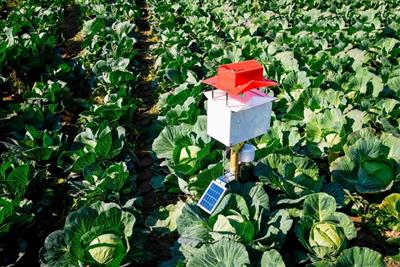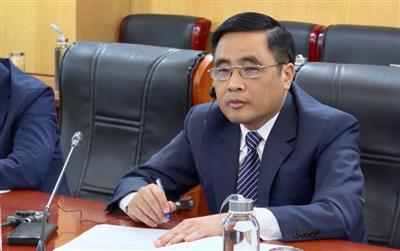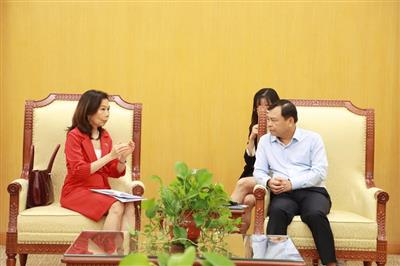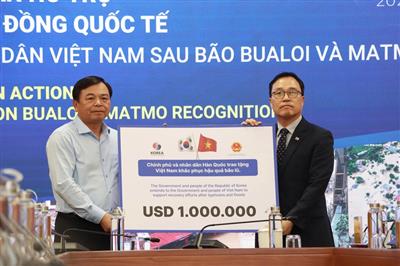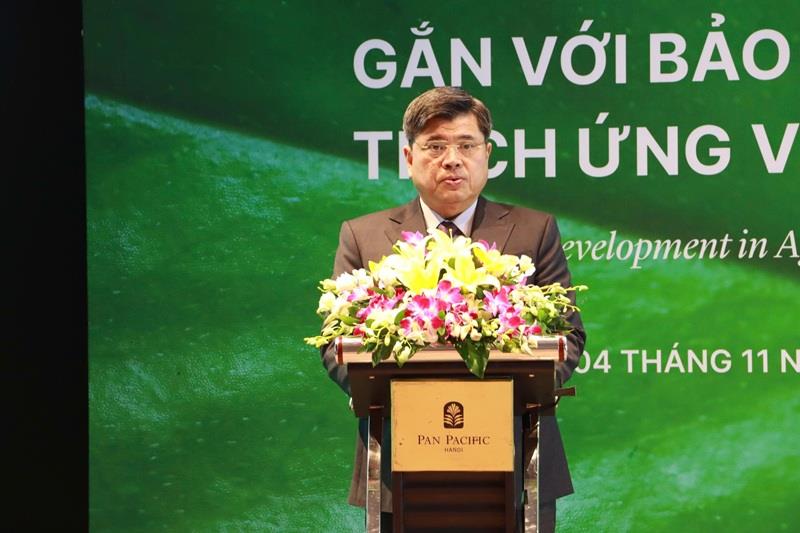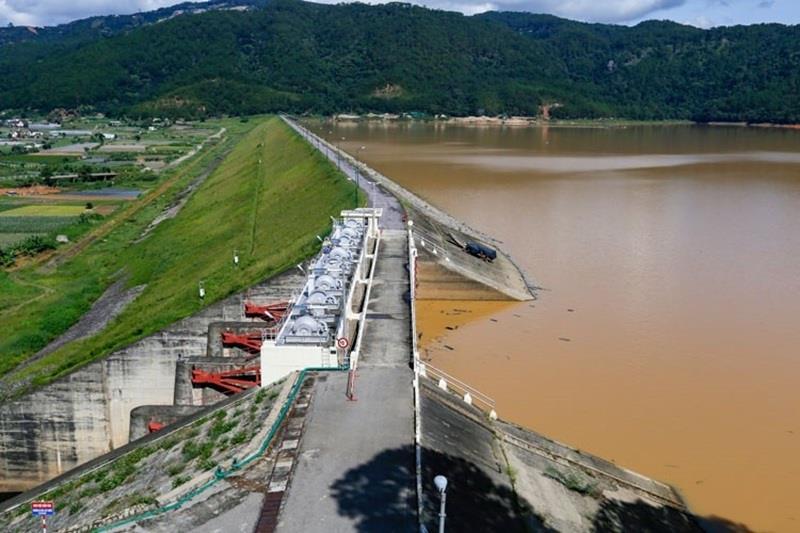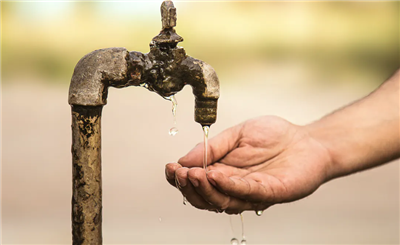
Strengthening business links and building a joint Vietnam-Brazil coffee brand
11/09/2025TN&MTThis was the focus highlighted by Deputy Minister of Agriculture and Environment Phung Duc Tien during a meeting on September 11 in Hanoi with Mr. Wilson Gambogi Pinheiro Taques, Representative of the Ministry of Agriculture and Livestock of Brazil on Embrapa’s Board (Brazilian Agricultural Research Corporation). The discussion aimed to enhance bilateral cooperation across agriculture, agricultural trade, and on-site processing, while exploring the development of a joint Vietnam-Brazil brand to increase product value and stabilize supply chains.
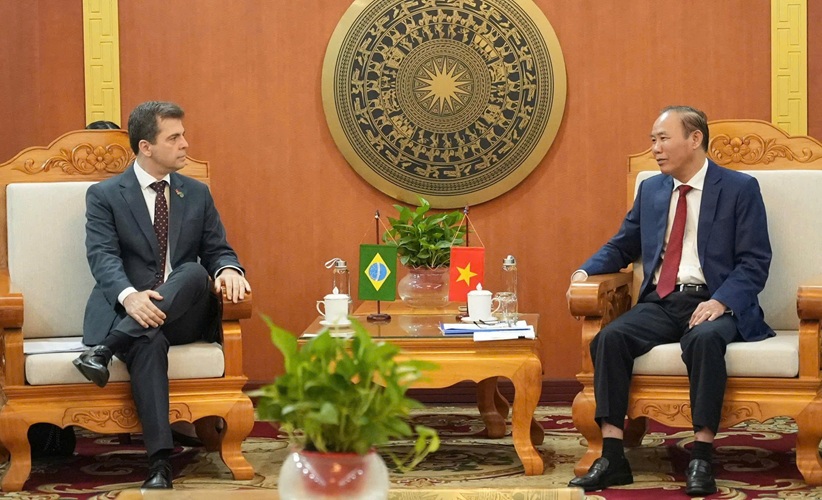
Deputy Minister Phung Duc Tien highlighted bilateral cooperation and the development of a joint Vietnam–Brazil brand during a September 11 meeting in Hanoi with Mr. Wilson Gambogi Pinheiro Taques, Representative of the Ministry of Agriculture and Livestock of Brazil on Embrapa’s Board
Promoting high-quality agricultural trade
Trade cooperation between Vietnam and Brazil has deepened with positive initial outcomes. Deputy Minister Phung Duc Tien informed that following Prime Minister Pham Minh Chinh’s visit to Brazil, both sides have actively promoted collaboration across agriculture, livestock, science and technology, environmental protection, and climate change adaptation. These areas are considered key pillars of the strategic partnership framework for 2025–2030.
Mr. Wilson Gambogi Pinheiro Taques emphasized Brazil’s commitment to supplying agricultural products with consistent quality, including beef, pork, chicken, cotton, and animal feed. Brazil also expressed interest in signing specific cooperation agreements on coffee, covering everything from breeding and cultivation practices to market development.
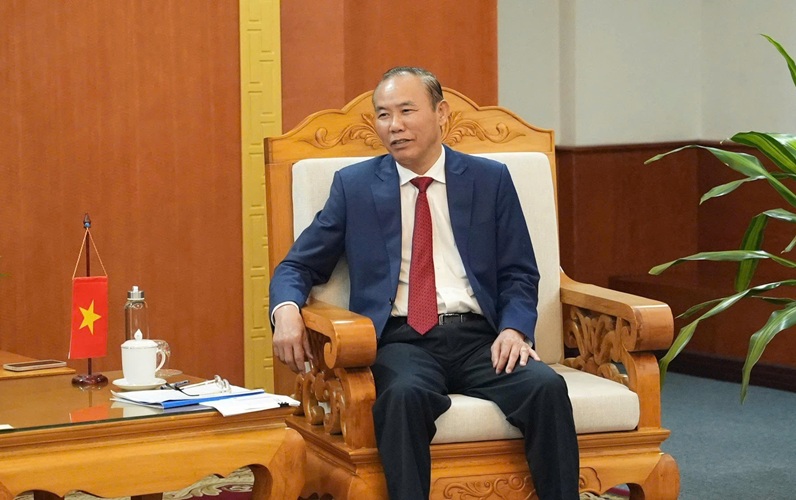
Deputy Minister Phung Duc Tien emphasized the need for ongoing information exchange and policy dialogue to support balanced, mutually beneficial bilateral agricultural trade
Currently, 105 Brazilian companies are authorized to export meat to Vietnam, with chicken products accounting for a significant share as the third-largest source in the Vietnamese market. From March 2025 to date, the Department of Livestock Production and Animal Health has received 162 applications for importing meat products from Brazil, including both new and supplemental registrations, all under active review in accordance with regulations.
The first shipments of Vietnam’s pangasius (basa) and tilapia to Brazil, together with the first Brazilian beef consignment to Vietnam, marked an important milestone in opening bilateral agri-aquatic markets. These shipments also contribute to stabilizing supply chains and building confidence among businesses on both sides.
Deputy Minister Phung Duc Tien stressed the importance of continuing information exchange and policy dialogue, while promoting bilateral agricultural trade in a balanced, mutually beneficial manner that serves the interests of both consumers and businesses.
On-site processing investment: Enhancing agricultural value chains
A key initiative proposed by Deputy Minister Phung Duc Tien is the on-site production and processing model, which aims to increase product value while better serving domestic consumption and exports to third-party markets.
The Ministry of Agriculture and Environment has engaged directly with JBS Group regarding plans to build a meat processing plant in Vietnam, with procedural guidance facilitated through the Brazilian Embassy in Hanoi to ensure swift and compliant implementation.
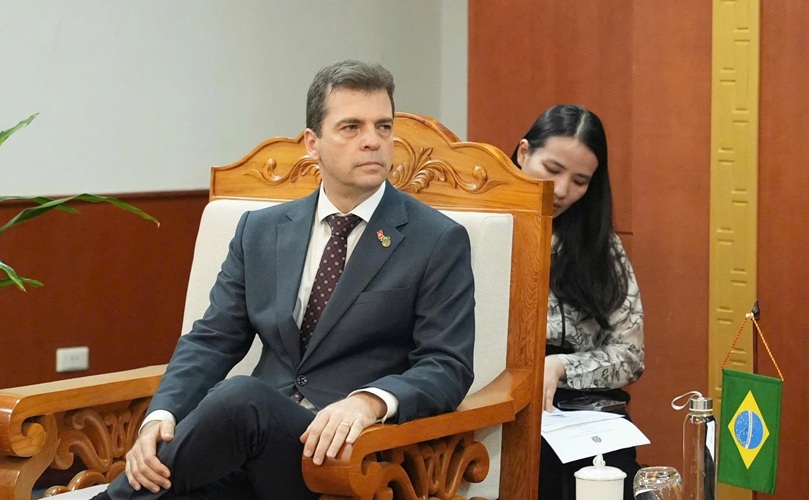
Mr. Wilson Gambogi Pinheiro Taques proposed a joint action framework and technical exchanges to boost Vietnam–Brazil coffee production and global competitiveness
Deputy Minister Phung Duc Tien emphasized that local processing investment can improve quality standards, reduce transportation time and costs, and generate higher value-added products. These steps are crucial for ensuring agricultural products meet international standards and expand market access.
The scope of processing cooperation extends beyond meat to include seafood, rice, cassava, coffee, and other key products. This approach creates a complete value chain from production to processing and distribution, meeting both domestic and international market needs.
The Deputy Minister tasked relevant agencies with closely coordinating with Brazilian businesses to concretize cooperation, organize workshops and trade promotion events, and ensure the effective implementation of bilateral commitments.
Coffee cooperation and developing a joint brand
Coffee is a strategic sector where both Vietnam and Brazil hold competitive strengths. Brazil produces around 4 million tons annually, while Vietnam yields approximately 2 million tons from more than 700,000 hectares, with export turnover for the first half of 2025 nearing USD 7 billion. Deputy Minister Phung Duc Tien highlighted that collaborating to develop a joint coffee brand is both logical and necessary, reinforcing the international influence of both countries.
The two sides agreed to intensify the exchange of cultivation experience, apply scientific and technological advancements, and coordinate to stabilize the global coffee market. These efforts form a foundation for improving product quality, maintaining a reliable supply, and meeting international standards.
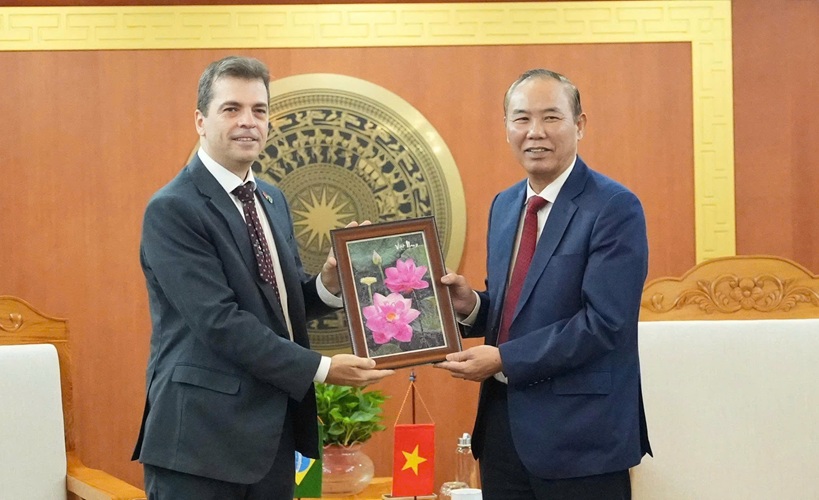
Deputy Minister Phung Duc Tien and Mr. Wilson Gambogi Pinheiro Taques exchanged commemorative gifts
Mr. Wilson Gambogi Pinheiro Taques proposed establishing a concrete action framework, organizing technical delegations to survey production models, and exchanging experiences on seed varieties, cultivation processes, and market development. Such activities aim to strengthen production capacity and enhance the global competitiveness of Vietnam–Brazil coffee.
Forming a joint brand is also seen as a strategic move to boost product recognition, increase value addition, and lay the groundwork for sustainable long-term cooperation.
Through a joint brand and connected value chain, Vietnam and Brazil can not only reinforce bilateral cooperation but also enhance international competitiveness, stabilize supply chains, and expand the presence of their coffee products in global markets.
Khanh Linh - Ngoc Huyen




